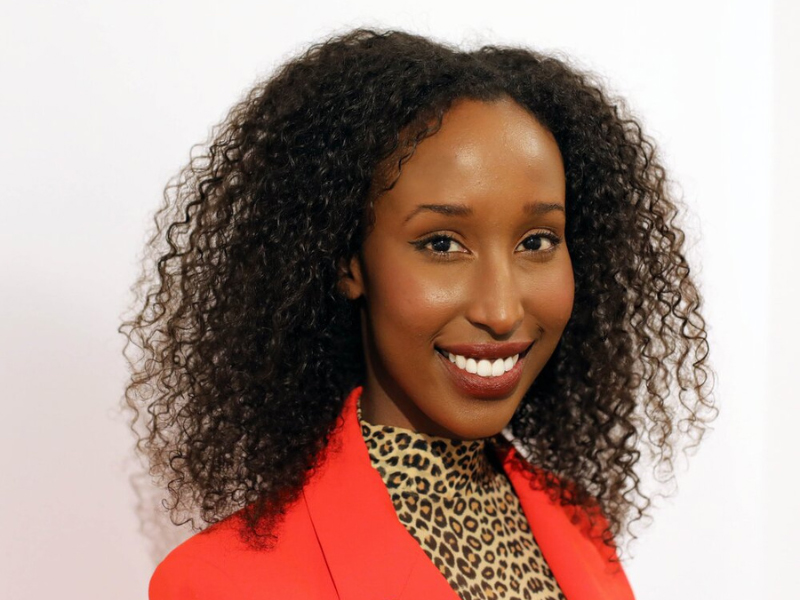Ebyan Abdgir

Ebyan Abdgir (external link) ‘17, is a podcast producer for Rogers’ Sports and Media Frequency Podcast Network. She works primarily for the flagship show The Big Story, Canada’s first daily news podcast.
What did you initially see yourself doing when you first enrolled in journalism school?
I’ve loved news and current affairs for as long as I can remember before I even really knew it. I grew up watching Oprah and the evening TV news. So, naturally, choosing journalism just made sense for me. My goal entering journalism school was simple: to be a journalist and to gain the skills to do the work. I didn’t want to stick with just one medium. I made the goal to learn about print, digital, broadcast radio and TV, and then later podcasting. It’s really hard to say what I saw myself doing because, like many journalists who joined the industry after 2008, we knew the industry was changing like crazy. It’s hard to imagine roles that might literally not exist yet. Now, I enjoy producing news and current affairs, the editorial decision-making part of amplifying stories already in the news cycle and adding much-needed context and analysis.
Could you please explain your career path since graduating J-School and how you arrived at your current position?
I’d say my career trajectory has been its own job, a practice in asking myself, “Is this what I want to be doing? Am I growing? Learning? where can I improve?” My first byline was in (the former student-run feminist magazine). I then interned at a now-defunct music publication called Chart Attack. I really thought I wanted to be a music journalist. I freelanced for a bit and realized that it wasn’t for me. I then applied for the Toronto Star’s staff radio room program and got it. The same year, I interned at CBC’s As It Happens and fell in love with radio. From there, I bounced between a ton of programs at the CBC, from local news to national network radio and TV, working primarily as an associate producer and then a producer. I’ve landed in podcasting because I’m most excited about the medium.
What does a typical workday look like for you?
We’re currently working remotely due to the ongoing pandemic. Our core team meets virtually every morning to discuss the news of the day. We then discuss pitches and story ideas, essentially what big story we’d like to cover of the day and what we’d like to stay on top of in the coming days. When stories are greenlit, we chase guests, prep them for our host, produce the interview, edit the interview, and publish it real early for the following day.
How has your journalism degree and what you learned in school prepared you for your current career?
I got all the skills I needed to perform and do the duties required of me. My degree taught me the core skills of being a journalist, and I had a lot of time to think more deeply about my overall career goals. I’m grateful for the instructors who are invested in their students’ passions, interests, and careers. It really goes a long way.
What’s one of your favourite memories from J-School?
I enjoyed every time a journalist came to a class to offer real advice about working in the industry. It was almost always a combination of the work that is rewarding, but it’s hard. Also, getting a staff reporting gig at the Toronto Star’s radio room was a shifting moment for me. I had just wrapped up a part-time job in the restaurant industry, and I didn’t have anything lined up for the summer. I made a personal goal that I wanted to pursue paid journalism work only. I bet on myself, applied for the role, and it worked out.
What advice would you give to current journalism students?
Collaboration is super important to thrive in the industry. Be open to sharing stories and building together. Learning about trauma-informed reporting, solutions journalism, your own biases or blind spots, and the history of biased and or racist reporting on misrepresented communities will help you tremendously in being a better storyteller. Remember to take it easy and take care of yourself: no work is more important than your health.
Grads at Work is a series of profiles of alums. If you know of a notable grad you’d like to see featured, send us an email at office.journalism@torontomu.ca.